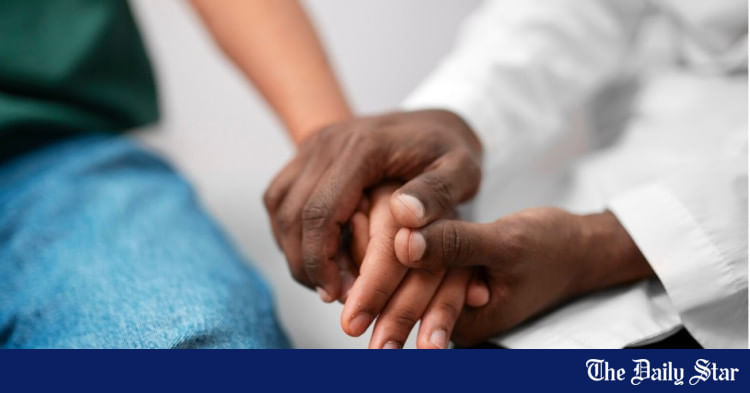Wed Nov 12, 2025 10:00 AM
Last update on: Wed Nov 12, 2025 01:18 PM
Wed Nov 12, 2025 10:00 AM Last update on: Wed Nov 12, 2025 01:18 PM
For a child or adult with an intellectual or physical disability, the caregiver becomes a sleepless sentinel, forever alert to danger. PHOTO: FREEPIK
“>
For a child or adult with an intellectual or physical disability, the caregiver becomes a sleepless sentinel, forever alert to danger. PHOTO: FREEPIK
The most profound acts of love often unfold in homes where a family member lives with a disability. In these homes, a woman—usually the mother, wife, or sister—becomes the entire infrastructure of care; a 24-hour lifeline that holds the household together. Yet, such relentless labour has huge implications on the physical, mental and economic well-being of the caregiver.
We often speak, and rightly so, about empowering persons with disabilities and ensuring their access to healthcare, education, and livelihood. Yet, in focusing so intently on the person with disability, we often ignore those who sustain their daily life. We are failing the caregiver and by doing so, we are also failing the person she serves.

During an interview for a BRAC Institute of Governance and Development (BIGD) study, a grandmother in her sixties explained that the physical strain of caregiving for her granddaughter with disability can be overwhelming. She is expected to shift from a position of gentle authority to that of a hands-on therapist, implementing complex and often painful exercise routines that are essential for mobility. Furthermore, the task of taking her to a hospital, which is quite a distance from their home, leaves her drained. She also cannot attend to household chores on those days.
Yet the physical toll is only part of the story. The psychological costs run even deeper. Caregiving demands constant vigilance. For a child or adult with an intellectual or physical disability, the caregiver becomes a sleepless sentinel, forever alert to danger. She cannot afford to let her guard down. This endless watchfulness ensures safety and dignity for her loved one, but it strips away her own rest, privacy, and peace of mind. Over time, this unending anxiety corrodes her spirit.
BIGD’s fieldwork with households that combine disability support with livelihood activities revealed a painful truth. Many caregivers, especially older women, reach a point of profound fatigue and scepticism. Findings from an ongoing BIGD study suggest that separate counselling sessions, focused solely on the mental health of caregivers, can help with their emotional wounds. When caregivers were given space to express exhaustion, manage stress, and rebuild motivation, the entire family’s progress in caring for the person with disability improved. Without this emotional repair, every intervention risked collapse.
The burden of caregiving is also deeply economic. In ultra-poor households, the caregiver often manages both care and income. She runs a small business, tends livestock, or manages a poultry farm while maintaining a demanding rehabilitation schedule. She is expected to be an entrepreneur, nurse, therapist, and homemaker all at once. Her life sits at the cruel intersection of poverty, disability, and gender inequality. This impossible balancing act comes at a cost. If she focuses on the family business, caregiving suffers. If she focuses on caregiving, the family income declines. The constant tension between economic survival and emotional duty keeps her trapped in a cycle of anxiety and exhaustion.
As a society, we must stop viewing caregivers merely as instruments of care and begin recognising them as individuals with their own rights to health, rest, and dignity. This crisis cannot be solved by sympathy alone. It requires systemic reform. We need to create community-based support networks that provide scheduled respite. Even two hours of rest a week for an elderly mother, taking care of child with disability, would help. Every disability or poverty programme should include psychosocial care for caregivers as a mandatory component. Government safety nets must be streamlined to ensure that caregivers receive adequate economic support.
The silent suffering of caregivers is one of the clearest indicators of our collective neglect. Their strength is extraordinary, but it is not infinite. If we truly want to secure dignity and opportunity for persons with disabilities, we must begin by protecting the health of those who hold their world together. It is time to lift this invisible burden before the strain becomes too heavy to bear, and the caregivers are lost to exhaustion.
Tahasin Tasnim Mohce is research associate at the BRAC Institute of Governance and Development (BIGD) in BRAC University.
Views expressed in this article are the author’s own.
Follow The Daily Star Opinion on Facebook for the latest opinions, commentaries, and analyses by experts and professionals. To contribute your article or letter to The Daily Star Opinion, see our guidelines for submission.

